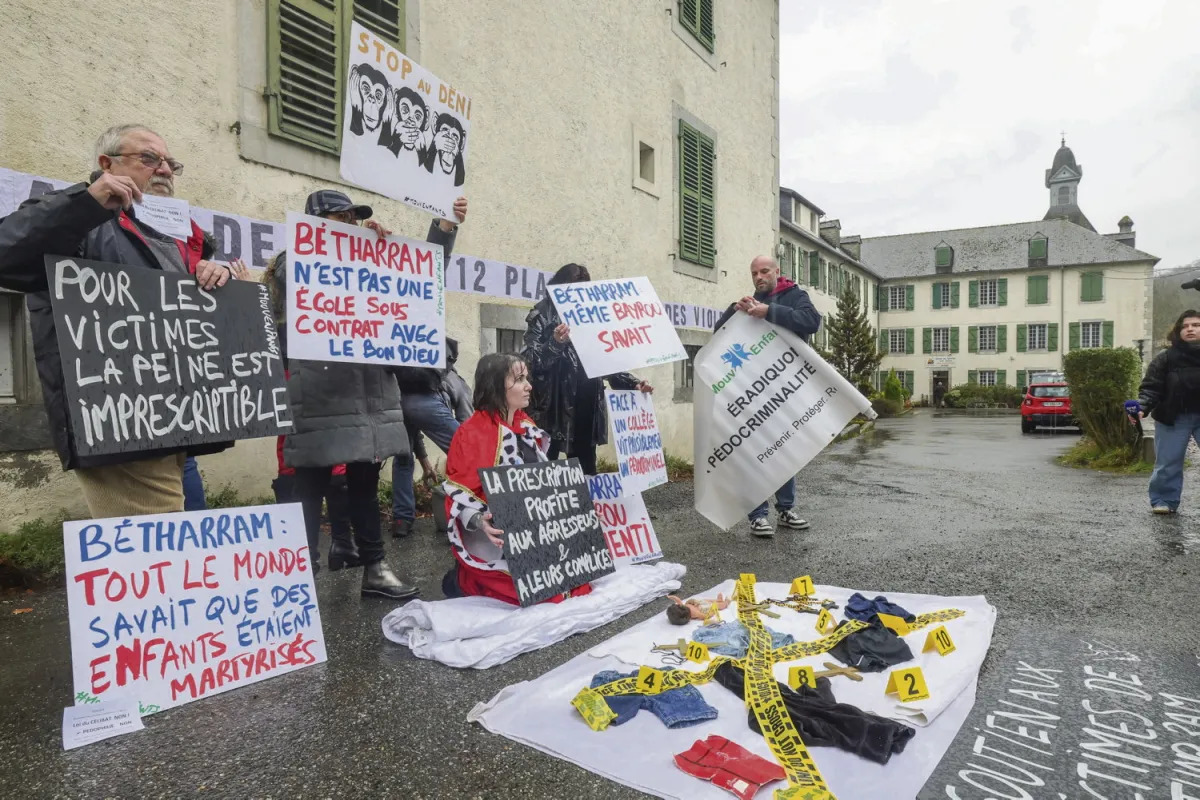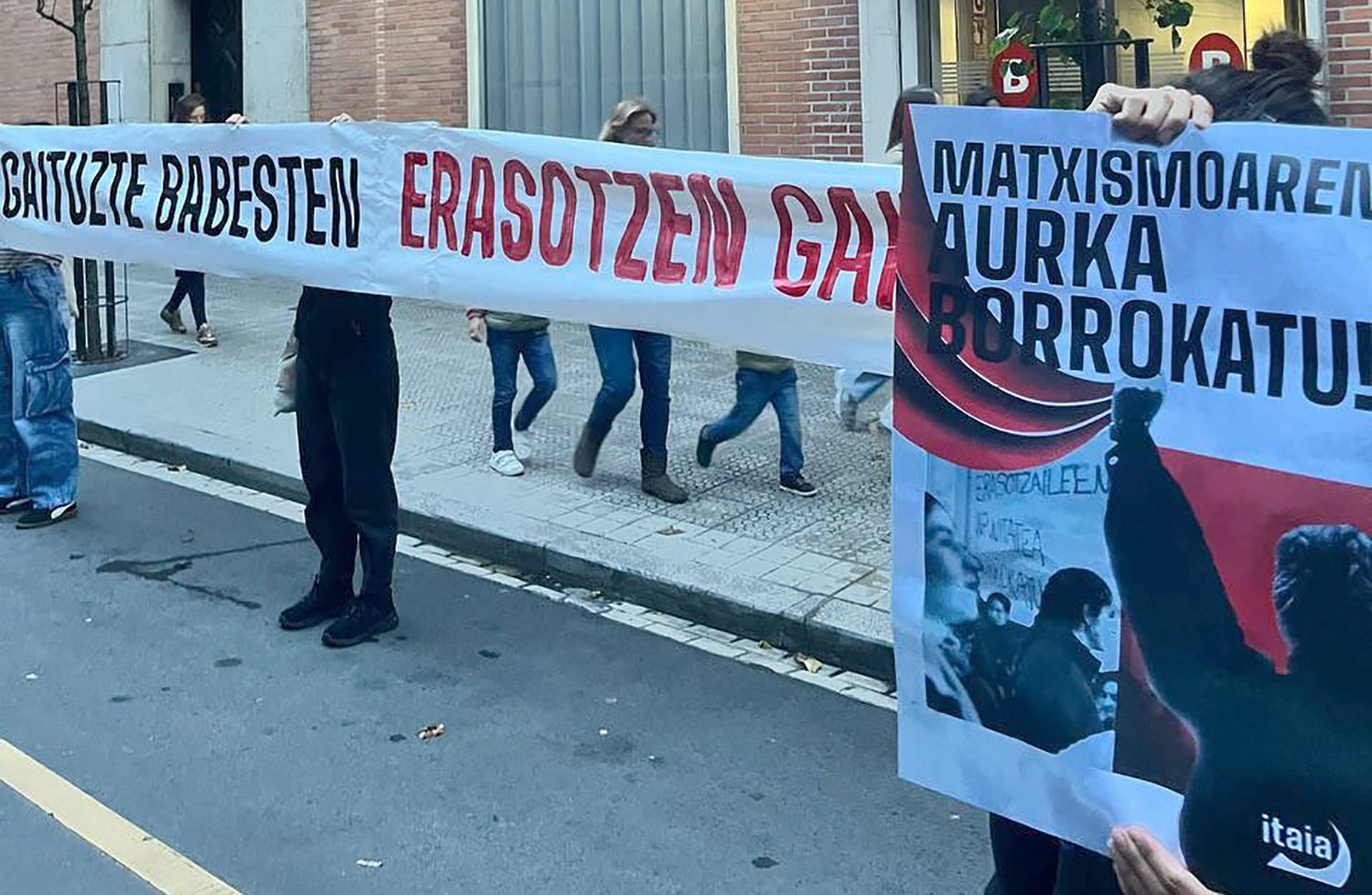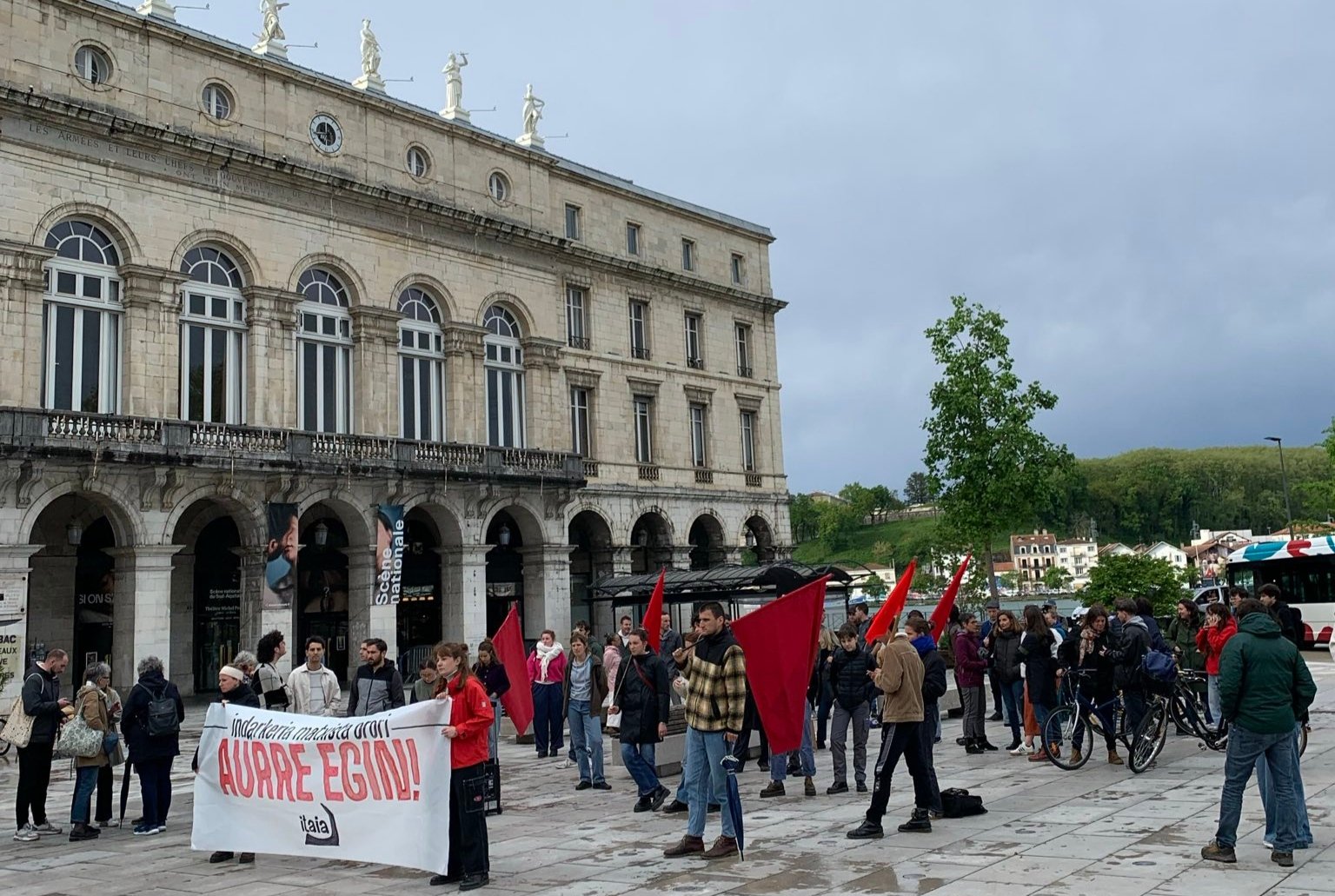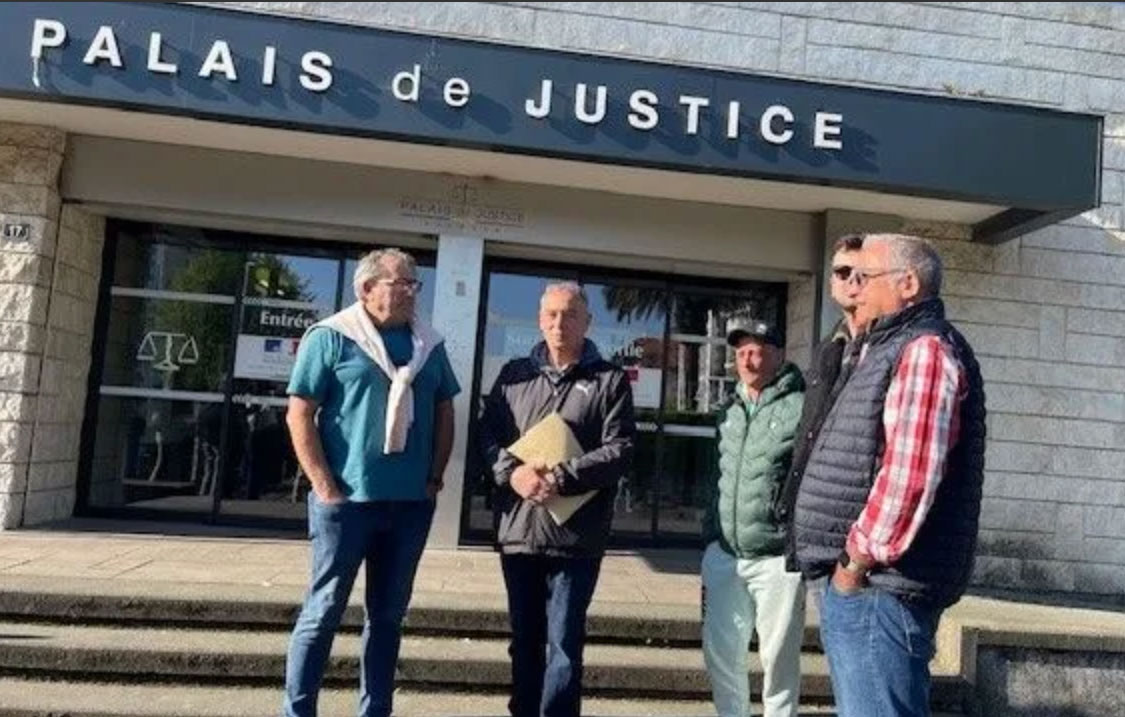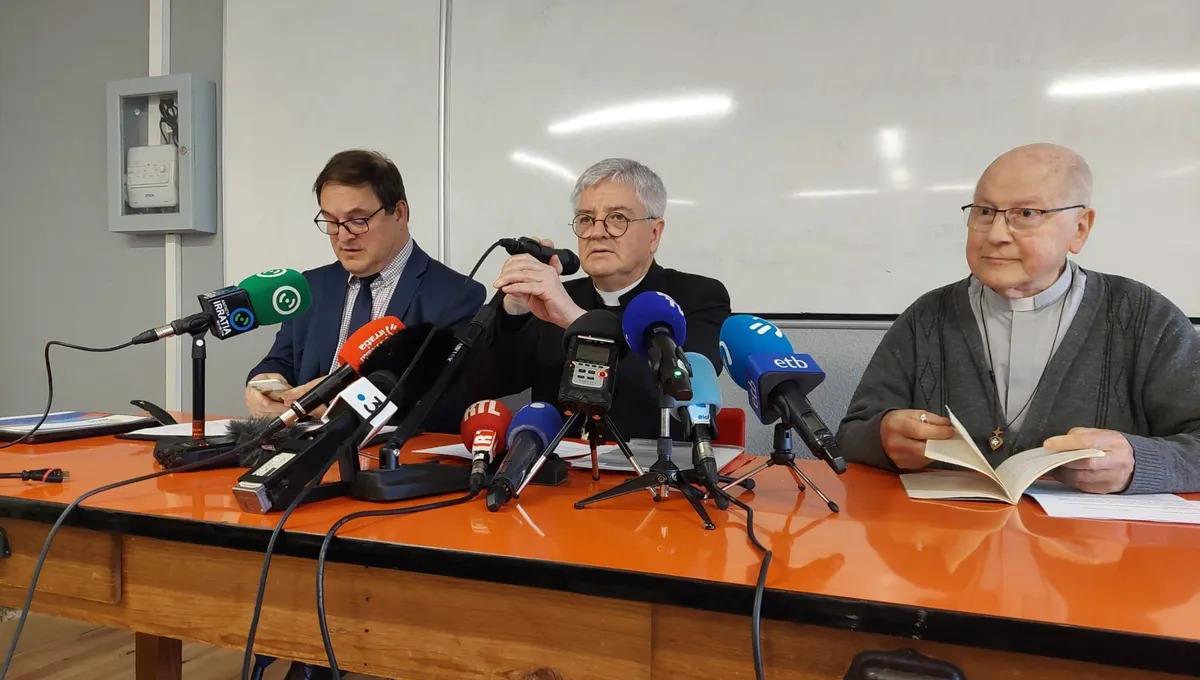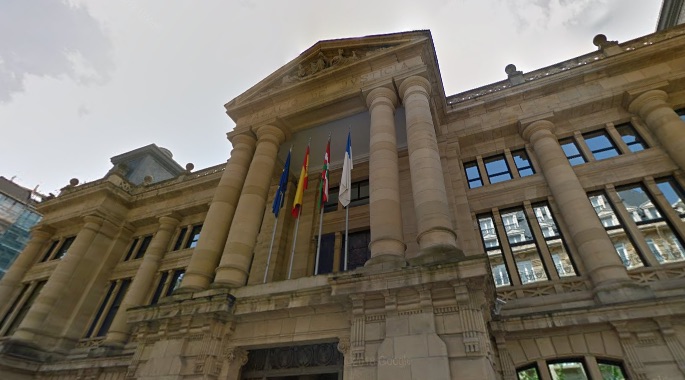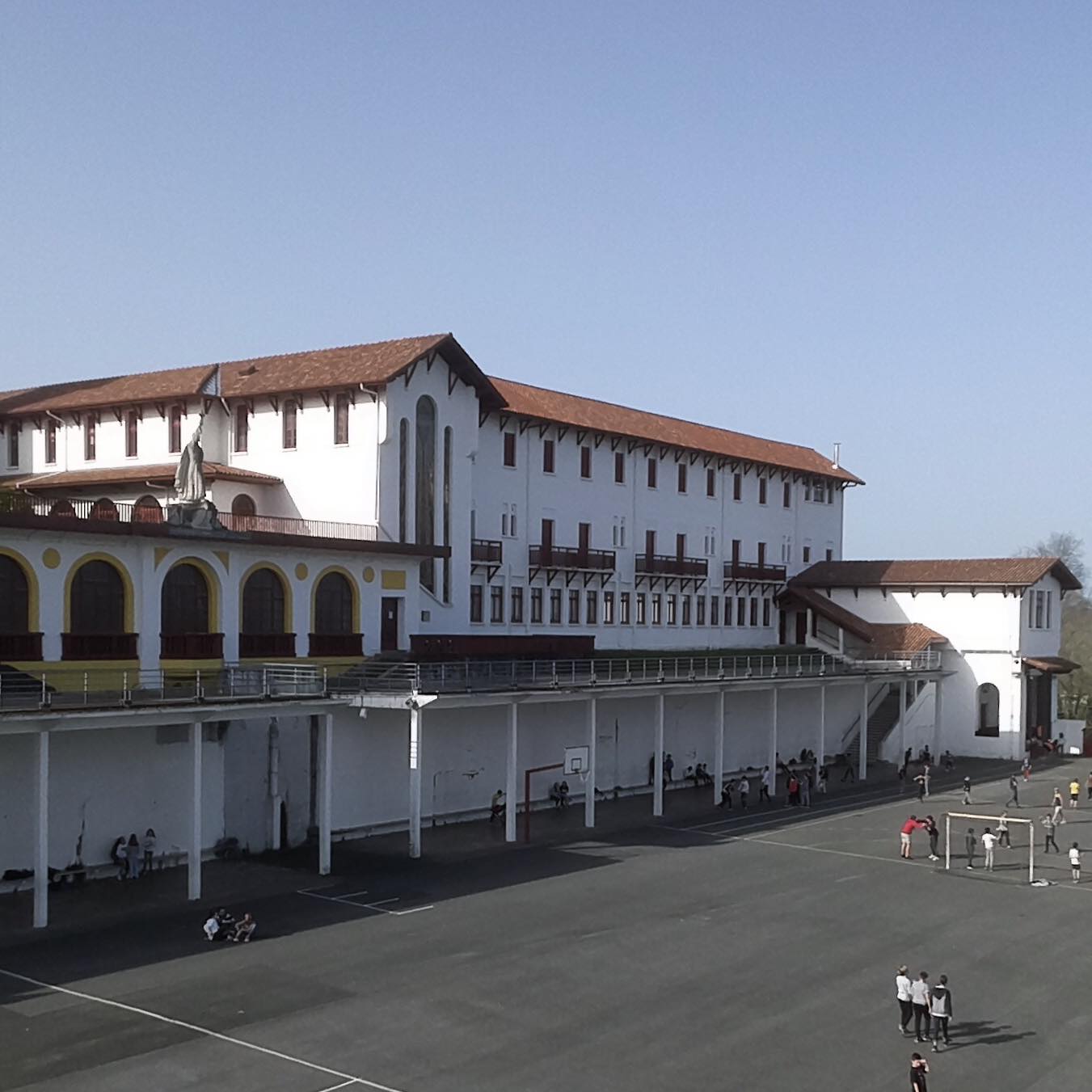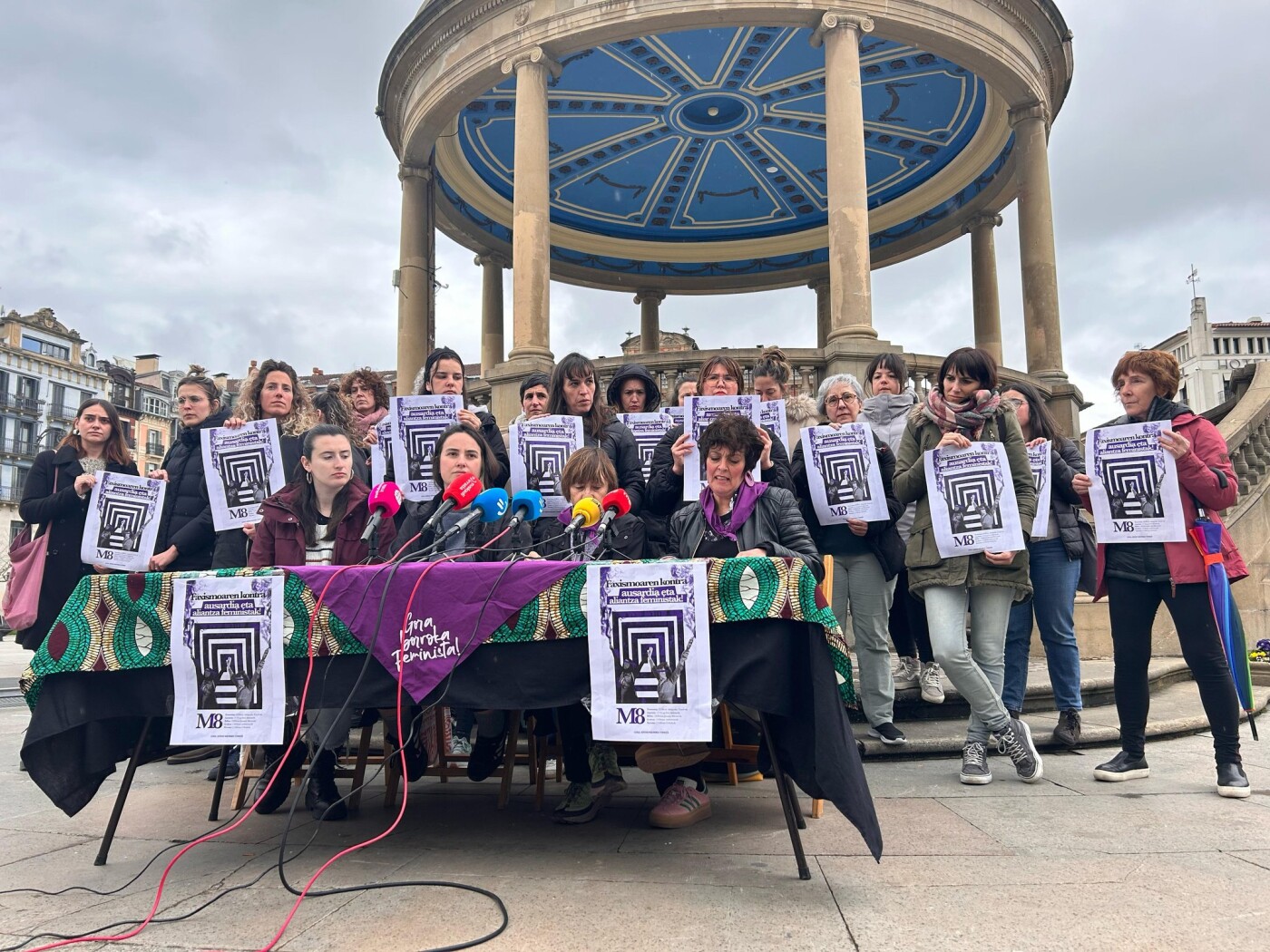Empowering your daughters -- and your sons?
- The girls and boys do not live in the same way the street, the boys feel freer and calm to enjoy the village. The woman is afraid to suffer violence and is transmitted to her knees. Above all, mothers take care that nothing happens to their daughter, without being able to maintain the balance between the desire to protect her and the desire to give her freedom. Their children live in another movie. They go quiet down the street, their parents don't think anything is going to happen to them either. And the other thing is that men are the perpetrators of violence, but with their children they don't talk about it.
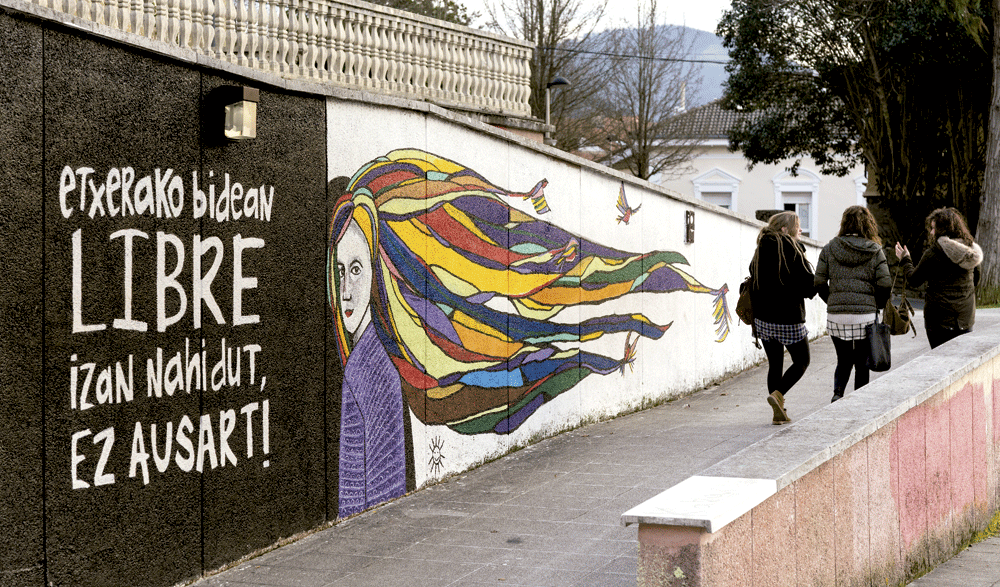
Hernaniarra Lurdes Barragan is the mother of Auritz (it is not her real name). Auritz is 18 years old and spends the week in Vitoria-Gasteiz, where he has gone to study. Barragán and her husband have always worked the gender perspective at home with their daughter. On the other hand, Auritz's mother believes that the experience at school has helped her a lot with the experience at home. Since the daughter was about 10 years old at Ikastola Langile de Hernani, Arremanitz Kooperatiba has taught classes on sexuality, good treatment and equality. At 15-16 years old, several boys and girls formed the Lileta group at school in the Auritz area. She is aware of what it is to be a woman, not stranger to feminism. The work of the gender perspective that the child brought from the school led his parents to follow the same path.
What did they do at home while they had the help of the Arremanitz Cooperative at school? The mother has emphasized the role that religion has played in her life, the patriarchal model that transmits religion. He added that, in addition to religion, society itself is also patriarchal. “Our everyday themes were sin, the feeling of guilt, how bad I have behaved, we are to take care of ourselves...” She tells her daughter that she's been very lucky because she hasn't had that burden, while her mother has cost her a lot and still has a hard time taking her off. The burden causes fear within oneself and fears are involuntarily transmitted to future generations. He tried to talk to his only daughter as if he was a boy. “I call him as the boy “Have a good time!” but he’s always thinking of “Beware!” or “always cover the forest with his hand, burundanga and so on.” He tells him to have fun, but he always has a subliminal message ready: ‘Don’t come alone!’
Gorka goes home alone accompanied by Auritz
He reports with great regret the next episode, the fear of parents and the difference between boys and girls when leaving the street: Auritz went to the cinema at the time of the earthquake. In Hernani, the season of bars means that there are a lot of party people and that not all practice good deals. Marriage and daughter live in the same place. The mother and father looked from the house, from which side the daughter came. All of a sudden, her daughter wrote to her cellphone. “Quiet, Mom, Gorka told me he’s going to help me.” He appeared with Gorka and the mother was reassured. Then Barragán felt a great pity, as the boy went home alone, and his daughter asked for help to return home.
In Lurdes Barraga: “I say to the boy “Have a good time!”, but he’s always thinking of “Beware!” or “always cover the forest with his hand, the burundanga and things like that…”
When she returns from party, she asks her daughter to come to her room and tell her that she has arrived. Barragán says that in his daughter's youth, the maternal instinct is awakened again. Even though her mother was in the adjoining room, she would wake up easily. Now the same thing happens, when your daughter leaves at night easily wakes up with a question in her head, “Has she come?” It is not very pleasant for him to react in this way, but he cannot avoid it. Finally, when he came home he asked him to wake up, although he is not sure he has made the best decision.
We have mentioned the maternal instinct, but we have asked Barragán what attitude the father takes in these situations: “If my daughter asks my father to go for her at night, my father says yes, and I think, does my father have to go for her or do they have to fix her?” My father is always willing to go and look for her.” And why does the father take that attitude, especially because he's afraid of his daughter or because, in general, parents today protect a lot of their children? The question does not surprise Auritz's mother, reflects: “I don’t know why it is. Maybe when you're a parent you're more scared and you're always picking up the chick. But perhaps the current situation gives us more fear.”
Feeling afraid
The Hernaniarra has no doubt that he has the fear in the body. Try closing the zipper so you don't always think about it and give your daughter freedom. In winter she is less afraid because her daughter travels through Hernani and the youth environment is in the same place where the family lives. Summer is more complicated, her daughters and friends enjoy holidays by towns. According to Barragán, “I am very sorry to say so, but as a mother, I am afraid”. She asks her daughter if she is afraid and answers yes.
To put it in some way, they tried to choose one of the two forms of education when the child was young, or tried to educate the child in fear or to push for progress in a thousand areas of life. Mother and father chose the second one. Barragán believes it is important to help the child and young woman to empower themselves, although sometimes it is not easy to find the balance. If he does not take the measure, the young man may believe that he will devour the world, and that attitude does not seem appropriate to the mother.

it is often believed that girls and boys are educated in the
same way, campaign messages indicate otherwise.
I wouldn't use the whatsapp but...
The mobile phone is an excellent control mechanism. Barragán has realized this and had to deal with his whatsapp. He told us a detail. In Whatsapp you can see when others have made their last connection. He thought about taking it off the top so that others couldn't see when it was connected and when it wasn't. The daughter watched the app and saw it was connected. Well, in the end, he hasn't disconnected it and says, “The phone is a mode of control and also of relaxation. It may have more inconveniences.”
Couple relationships, as dangerous as the street
With Axier Baglietto, a member of the Arremanitz Cooperative, we have worked in public space, youth and fear (see page 25) and told us that the main concern of parents is that their daughters go out into public space, but that the most painful and constant violence is experienced in the family and in relationships with partners. We've asked Auritz's mother if they've worked that field at home. They worked on someone else's dependency when they were younger with their daughter. They used the example of the alcoholic to explain it: he has made you a subject, you have to be by your side, you have lost control. They explained to their daughter what self-esteem is, “If you don’t have certainty in you, if you don’t have your head in place, you can be the most beautiful girl in the world and the grain that has gone out of your nose can be a drama.” They told her real examples of what a poorly treated woman, violence, is in the village.
Is there nothing to do with children?
Barragán is a little afraid to talk about boys, because he has no children. However, the issue has emerged among friends and she sees her children's parents more reassured, as they are less at risk. However, it seems to Auritz's mother that with her children they talk little about their attitudes. Parents are not so clear if the topic should be discussed with their children, they have this kind of thoughts: “Because they are boys we have to give them a ‘sanbenito’?” “Because they are boys we have to tell them that they will mistreat the girls?” According to Barragán, the parents of the children are the most concerned, but it is sometimes very delicate to deal with the issue of children.
Boys become aggressors, but they often do not realize that they can also be victims of men, especially children. Barragán remembers what a friend told him. The school talked about the abuses that adults do to boys and girls. At home, the boy's mother raised the issue and started telling her son not to go with strangers, etc. Her son’s answer, “that’s for girls, mom.” All the children were told at the school, but that child did not take it for himself. The child spent the night very worried and the mother doubted: “Maybe I’ve talked to him very hard, but because he’s a kid, he thinks nothing’s going to happen to him, he was in a fog.” And Barragán said, “Boys feel more protected.”
Axier Baglietto, sociologist
“Children are often told nothing, or told, to protect girls.”
The sociologist Axier Baglietto is a member of the Arremanitz Cooperative and director of the Harremonak project of the Urola Valley. In all educational centers in Azkoitia, Azpeitia and Zestoa, sexuality, parity and good treatment work, especially with students. Harremona is a programme supported by the municipalities of the three municipalities. Baglietto has met parents in the talks they have offered and, above all, in the working sessions in which he has participated on two cases of violence.

How do parents experience violence in their daughters and sons and how do they act?
We've organized talks for fathers and mothers, but few come. With regard to sexual assaults, there have been two cases in Azpeitia (a child under 17 years of age has been subjected to an attempt at sexual assault and holes have been found in the wall of the female costumes in the Azpeitia football field).
The two sessions have been very enriching. Normally come the mothers, the mothers of the girls, the fathers of the boys do not feel any concern. Violence is a source of concern for some parents, more than for others, but they do not say “something must be done” until something happens. No precautions are taken, they do not say: “Maybe I would have to start seeing how my daughter/son wears this issue.” You don't talk until it happened, and then we get scared and we seek help.
What are the consequences of fear on parents' attitudes?
Above all, there are two options in the face of fear. One is that fear moves forward. Another thing is to shrink, limit freedom, step back. At the moment, such things are going to happen, and they are much more numerous and varied than we know. Work does not begin when we cannot withstand fear or when an event bursts, but rather earlier.
You say that family issues aren't much discussed, but how isn't it going to work if parents are worried?
Cultivate yes, but in the particular field. The question is how to prevent my daughter from taking a risk. For fear and just me what can I do? “Come and join at 3:00; always keep the phone on; call him...” You will avoid the attack or you will succeed, but above all, you are reinforcing your attitude of fear. We are assuming that these kinds of situations are normal, it is the consequence that the issue has remained silent. On the contrary, it gains potential if we put it on the table and face it.
It's a social problem, it's not about what happened to my daughter, what the aggressor did. It is up to us all to talk about it.
You say that the session you did with your fathers and mothers when they assaulted the 17-year-old girl was enriching.
The aggressor, of foreign nationality, has been arrested. In the parents' session a point of view was imposed: they are foreigners, now things like this are happening ... He felt restlessness, fear, anguish. But all of a sudden, they began to talk about the violence that their mother had suffered as a woman during parties and nights. It was the neighbor, the one at school. Suddenly, there was a new environment. They realized that this had always happened and that they had always kept quiet.
What solutions do parents propose?
Sanction and control. The aggressors must be punished, neutered and tied with a long chain.
The father puts the risk on the street. You say that violence is very present in the family and in relationships with partners.
Parents are concerned about what is going to happen to their daughter during the holidays in Pamplona, do not realize that they can suffer or are suffering worse situation in a couple or in another environment. Perhaps parents are thinking “how well, with the boy will do less to play,” and he may be suffering tremendous violence in the couple.
"Parents are concerned about what is going to happen to their daughter during the holidays in Pamplona, do not realize that they can suffer or are suffering worse situation in a couple or in another environment"
What you do with kids, or rather, what you don't do, you worry.
What do you tell you when your daughter leaves the street? Care, care, care... And does it tell your son something? Children are often told nothing, or if they are told, to protect them. However, it may be more important to ask about the attitudes they have in groups of boys. If they perceive inadequate attitudes towards girls, how they feel to cope with a situation. We must stress the importance of not being accomplices, of helping them feel empathy for girls.
All the aggressors are men, we have to do something, right? When situations of violence occur, it is true that it is difficult for us to know how to act. We've learned to punish the aggressor or accomplice, to deny him love, to tell him that it's a shame. Playing like this, we close roads. Of course, we have to ask our son for all the responsibility for what he has done, but maybe we can't deny him love, understanding.
What general advice do you give to parents?
Adults tell us that we are an example. If we want to deal with violence, it is important to observe the relationships that young people experience in the near environment, the family. We have to reflect on how we manage authority, conflict, whether we put limits with affection, whether we take care of ourselves or not, whether we accept control, threats, blackmail.
Do you think we are on the right track?
Today talking about it is a tremendous achievement. We are breaking centuries of silence. It's coming out in the media and around it, and that's a first step to starting to recover. I would say that we are at the beginning of a process.
Is the street mine?
Maria Rodó de Zárate and Jordi Estivill i Castany have interviewed 70 girls and boys in Barakaldo, Hernani and Vitoria-Gasteiz. The resulting work is as follows: Is the street mine? Power, fear and empowerment strategies of young women in a hostile public space. Taught in Basque: Is the street mine? Power, fear and empowerment strategies of young women in a hostile public space. It is a work supported by Emakunde and that analyzes, from a gender perspective, how young boys and girls live and use the public space. Gender conditions the way people live, the streets and the spaces. The study analyzes why fear is created and the consequences it has for women when it comes to living the village or the city. Fear explains how it perpetuates violence against women. The research highlights that fear has gender. For girls, public space has a hostile and more uncertain environment than for boys. The emotional consequences and limitations of freedom are far greater for women than for men.
Prentsaurrekoa eskaini dute ostegun honetan Marc Aillet Baionako apezpikuak, elizbarrutiko hezkuntza katolikoko zuzendari Vincent Destaisek eta Betharramgo biktimen entzuteko egiturako partaideetarikoa den Laurent Bacho apaizak. Hitza hartzera zihoazela, momentua moztu die... [+]
Antifaxismoari buruz idatzi nahiko nuke, hori baita aurten mugimendu feministaren gaia. Alabaina, eskratxea egin diote Martxoaren 8ko bezperan euskal kazetari antifaxista eta profeminista bati.
Gizonak bere lehenengo liburua aurkeztu du Madrilen bi kazetari ospetsuk... [+]
11 adin txikikori sexu erasoak egiteagatik 85 urteko kartzela zigorra galdegin du Gipuzkoako fiskaltzak. Astelehenean hasi da epaiketa eta gutxienez martxoaren 21era arte luzatuko da.
Matxismoa normalizatzen ari da, eskuin muturreko alderdien nahiz sare sozialetako pertsonaien eskutik, ideia matxistak zabaltzen eta egonkortzen ari baitira gizarte osoan. Egoera larria da, eta are larriagoa izan daiteke, ideia zein jarrera matxistei eta erreakzionarioei ateak... [+]
Elizak 23 kasu ditu onarturik Nafarroa Garaian. Haiek "ekonomikoki, psikologikoki eta espiritualki laguntzeko" konpromisoa adierazi du Iruñeko artzapezpikuak.
15 urteko emakume bati egin dio eraso Izarra klubean jarduten zuen pilota entrenatzaile batek.
Lestelle-Betharramgo (Biarno) ikastetxe katolikoko indarkeria eta bortxaketa kasuen salaketek beste ikastetxe katoliko batzuen gainean jarri du fokua. Ipar Euskal Herriari dagokionez, Uztaritzeko San Frantses Xabier kolegioan pairaturiko indarkeria kasuak azaleratu dira... [+]
Bi neska komisarian, urduri, hiru urtetik gora luzatu den jazarpen egoera salatzen. Izendatzen. Tipo berbera agertzen zaielako nonahi. Presentzia arraro berbera neskek parte hartzen duten ekitaldi kulturaletako atarietan, bietako baten amaren etxepean, bestea korrika egitera... [+]
Martxoak 8a heltzear da beste urtebetez, eta nahiz eta zenbaitek erabiltzen duten urtean behin beren irudia morez margotzeko soilik, feministek kaleak aldarriz betetzeko baliatzen dute egun seinalatu hau. 2020an, duela bost urte, milaka emakumek elkarrekin oihukatu zuten euren... [+]
Neska adingabeari sexu abusuak era jarraituan egin zizkiola frogatutzat jo du Bizkaiko Lurralde Auzitegiak.











